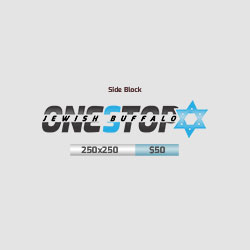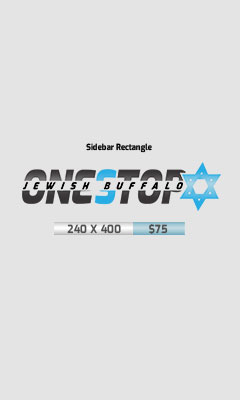Of all the blessings that are mentioned in the Torah, the one that stands out for its simple eloquence is the Priestly blessing in our Parsha. This blessing, known in Hebrew as Birkat Kohanim, is recited by the Kohanim (descendants of Aaron, Moses’ brother) during the Jewish Festival services. In Israel it is recited more frequently. It is obvious that every word of this blessing is replete with meaning.
In today’s message we will focus on one (Hebrew) word that appears in the very first verse of this blessing: “v’yishmirecha-May He protect you.” While most people would understand the meaning of protection, our Sages found it necessary to expound on it.
Our Sages in the Midrash called Sifri, provide us with three interpretations of protection:
(A) May G-d bless you with possessions and protect your possessions.
(B) Rabbi Natan said, May G-d bless you with possessions and protect your body.
(C) Rabbi Yitzchak said, “May G-d protect you from the evil inclination.”
We have thus three forms of protection that is invoked in this blessing: protection of our property, our bodies and our souls.
We know that every nuance of Torah — both the Written Torah (Biblical literature) and the Oral Torah (Talmud, Midrash, Kabbalah, etc.) — is precise. In light of this belief, one is entitled to ask why is the first opinion stated anonymously, while the second and third opinions of protection are stated with the names of their respective authors, Rabbi Natan and Yitzchak?
The first form of protection is stated anonymously because it is a universally acknowledged need and blessing. Protecting our property, is a need that most people can relate to and will go to great lengths to procure. Most people will insure their belongings, put locks on their doors, put their valuables in safes and safety deposit boxes, build fences around their yards, post “No trespassing signs,” but relatively few will engage in habits that are not harmful to their bodies.
People who spend fortunes on protecting and preserving their property, will think nothing of smoking, driving recklessly and other hazardous practices that undermine the protection of their bodies.
Protecting our property is a more prevalent concern because it is one of the strongest human needs. It is a response to the ingrained human trait of envy, responsible for most conflicts between nations and individuals, that was around since the days of Cain and Abel and will only disappear in the Messianic Age. We are therefore always so conscious of the threat that exists with respect to our possessions that results from envy.
To protect our bodies requires a more sophisticated sense of appreciation for the integrity of our bodies. The struggle to maintain our body’s integrity is weakened by our body’s desire to satisfy its urges and desires. One must have a sense of the reason why our bodies are here. It therefore takes a Rabbi “Natan” to appreciate our body’s importance. The word Natan means “He gave” an allusion to the gift that G-d gave us. We must realize that the body is a G-d given treasure that should be preserved and protected.
But even if we learn to appreciate the value of our bodies and we seek and receive G-d’s blessing for its protection, we will still tend to neglect our souls. To appreciate the value of the soul and its pre-eminence over the body and its needs, one must be a “[Rabbi] Yitzchak.” The word Yitzchak means “He will (future tense) laugh.”
It takes a person who is future oriented and not concerned exclusively with the here and now to accentuate the needs of the soul over the needs and wants of the body. Only one who looks forward to the days of Moshiach for the true and ultimate laughter, and who realizes the bliss for the soul and body that will come in the future, will realize the great blessing there is in G-d protecting not only our property and bodies, but also, and, more importantly, our souls.
By orienting our lives now in the spirit of the joy and laughter of the future, we will experience the full measure of G-d’s blessings.


